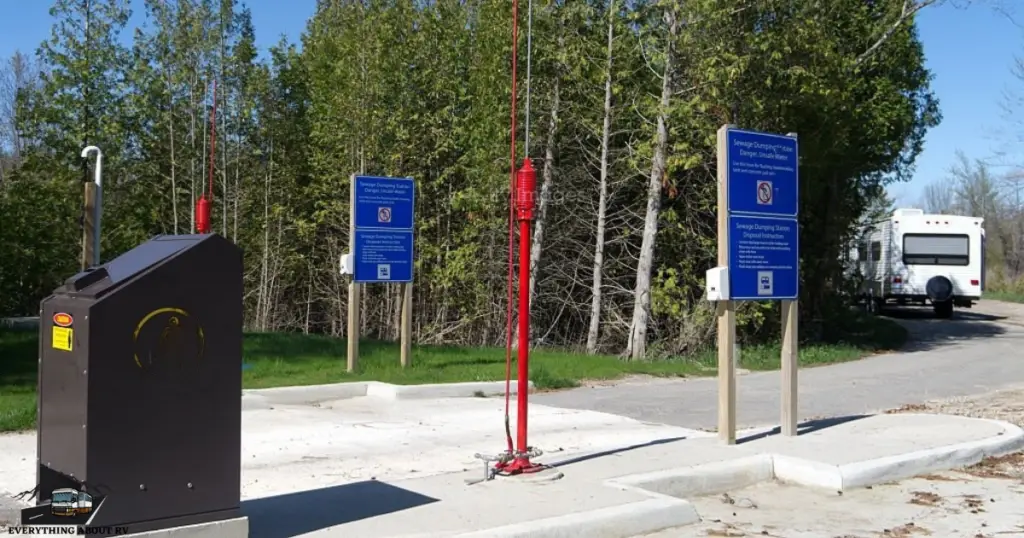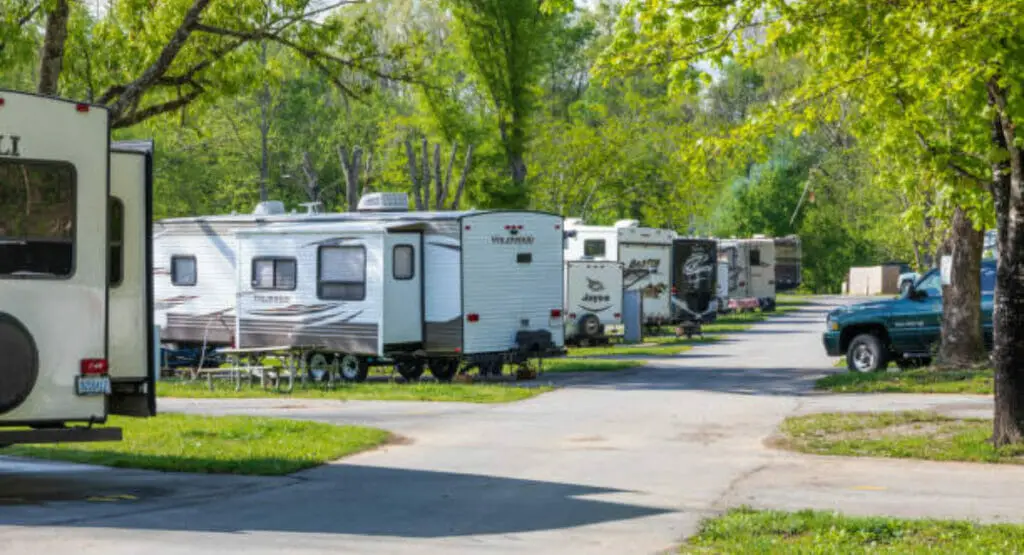Proper sewage management is critical for RV parks to provide a pleasant guest experience while protecting the environment. It is critical to handle wastewater from RVs responsibly in order to avoid pollution and comply with regulations. By implementing efficient sewage collection systems, RV park owners can create a sanitary and environmentally friendly environment while promoting responsible tourism. Choosing the right system and following maintenance procedures will improve the overall guest experience and help conserve water and preserve the environment. RV parks can thrive while reducing their ecological footprint and contributing to a cleaner, greener future with sustainable sewage solutions in place.
I. Types of Sewage Collection Systems for RV Parks
There are three main types of sewage collection systems commonly used in RV parks:
1. On-Site Holding Tanks:
This system involves individual holding tanks installed at each RV site. Wastewater from RVs is collected in these tanks until they reach capacity, at which point they need to be pumped out and disposed of properly. On-site holding tanks are suitable for smaller RV parks with fewer guests, offering a straightforward and cost-effective solution.
2. Full Hookup Systems:
In full hookup systems, RVs are directly connected to the park’s central sewage system. This setup allows guests to enjoy the convenience of regular plumbing without the need to manage individual holding tanks. However, it requires more substantial infrastructure and ongoing maintenance to ensure proper functioning.
3. Centralized Sewer Systems:
Centralized sewer systems are commonly used in larger RV parks. They involve an intricate network of underground pipes that collect wastewater from multiple RV sites and transport it to a treatment facility or designated disposal site. While this system requires significant initial investment and maintenance, it offers a more efficient and sustainable sewage management solution for high-capacity parks.
II. Steps to Implementing an Effective RV Park Sewage Collection System
A. Evaluation and Analysis of the Site:
To determine the best sewage system for the park, consider its size, guest capacity, and location. Take into account environmental factors and follow local regulations.
B. Choosing the Right Equipment and Infrastructure:
For effective sewage collection and transportation, use high-quality pumps, pipes, and storage tanks. Invest in long-lasting infrastructure for long-term dependability.
C. Obtaining Necessary Permits and Adhering to Regulations:
To avoid legal issues and maintain environmental compliance, obtain permits from relevant authorities and adhere to sewage disposal regulations.
D. Creating a Maintenance and Monitoring Plan:
Create a regular maintenance schedule that includes pumping, cleaning, and inspection to avoid system failures and ensure proper system operation.
III. Tips for Proper Maintenance of RV Park Sewage Collection Systems
A. Regular Pumping and Cleaning:
To prevent overflows and maintain sanitary conditions, schedule regular sewage pumping and tank cleaning.
B. Educating RV Park Guests on Responsible Water Use:
To reduce the strain on the sewage system, educate guests on water conservation and responsible wastewater disposal practices.
C. Monitoring for Leaks and Potential Issues:
Inspect the sewage system on a regular basis for leaks and potential problems. Addressing problems as soon as they arise can help to avoid costly repairs and environmental contamination.
IV. Environmental Benefits of Sustainable RV Park Sewage Management
Sustainable RV park sewage management has a number of significant environmental advantages:
1. Water Conservation and Pollution Reduction:
RV parks can reduce water waste by implementing sustainable sewage collection systems. Proper wastewater treatment and disposal keep harmful pollutants out of nearby water bodies, preserving the local ecosystem and protecting aquatic life.
2. Reduced Carbon Footprint:
Sustainable sewage management practices such as on-site treatment or environmentally friendly disposal methods help to reduce the park’s overall carbon footprint. This environmentally conscious approach aids in the fight against climate change and promotes a greener environment.
3. Natural Resource Preservation:
Responsible wastewater management ensures the preservation of valuable freshwater resources. RV parks play an important role in conserving natural resources for future generations by minimizing water usage and properly treating sewage.
4. Promoting Eco-Friendly Tourism in RV Parks:
Environmental sustainability is becoming an important factor for travelers to consider when selecting a destination. RV parks that use environmentally friendly sewage management practices attract environmentally conscious visitors, resulting in a positive reputation and increased patronage.
5. Environmental Regulations:
Sustainable sewage management adheres to environmental regulations and standards established by local governments. Compliance with these regulations demonstrates the RV park’s dedication to responsible practices and aids in the avoidance of potential legal issues.
6. Educational Opportunities:
Implementing sustainable sewage systems can serve as an educational opportunity for RV park guests. Parks can raise awareness and inspire visitors to adopt similar practices in their daily lives by promoting water conservation and responsible wastewater disposal.
7. Community Engagement:
RV parks with sustainable sewage management can become environmental stewardship leaders in their communities. Participating in local communities and advocating for environmentally friendly practices fosters positive relationships and mutual support.
Adopting sustainable sewage management practices at RV parks benefits not only the business but also the environment and a more sustainable future. RV park owners can play a critical role in preserving natural resources and protecting the planet for future generations by prioritizing eco-conscious approaches.
Conclusion
Efficient sewage collection systems are essential for RV parks to provide guests with a comfortable and environmentally responsible experience. RV park owners can contribute to a greener future while running a successful business by choosing sustainable solutions and following proper maintenance practices.



